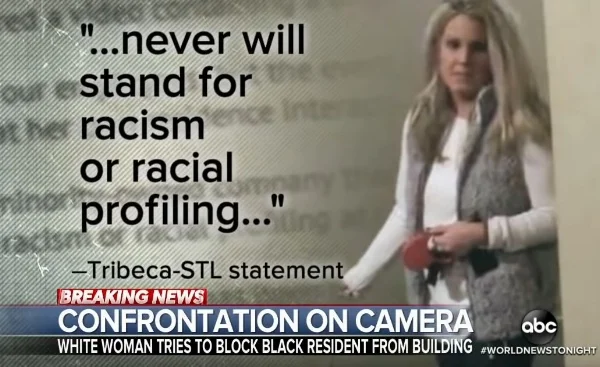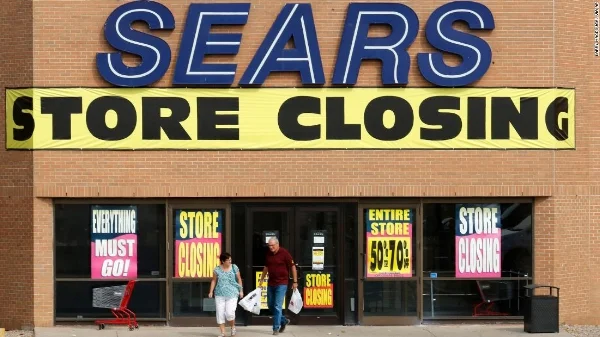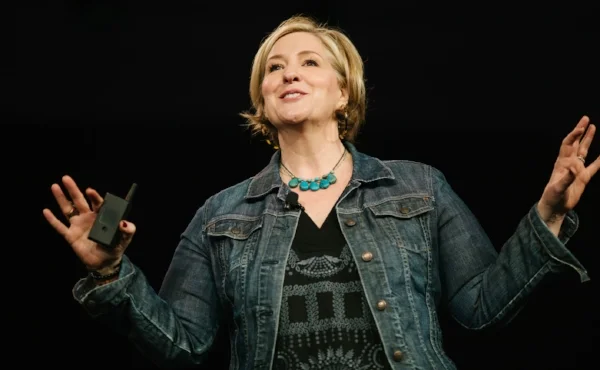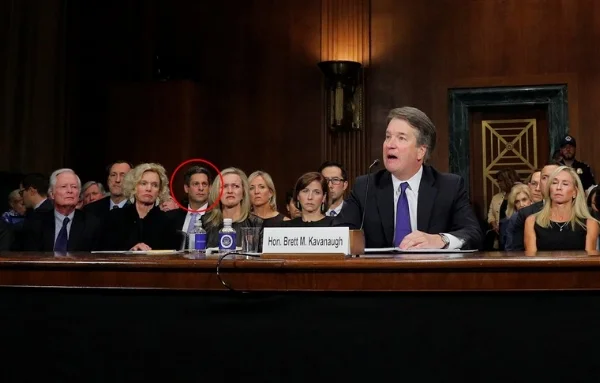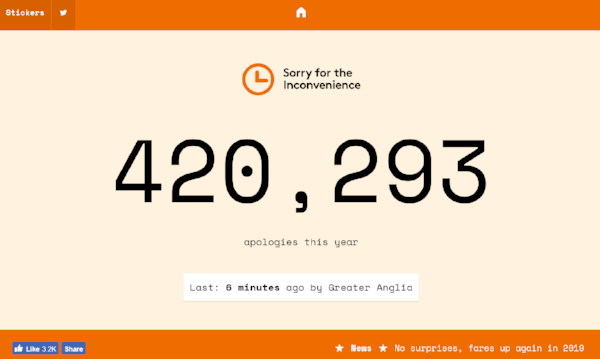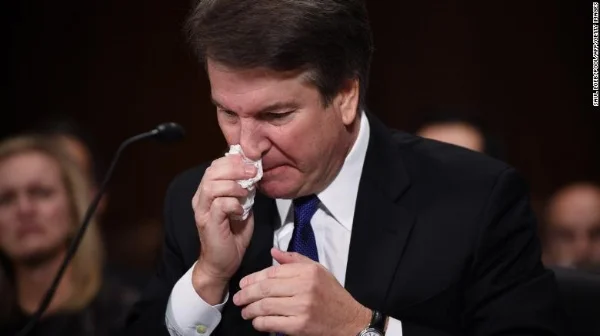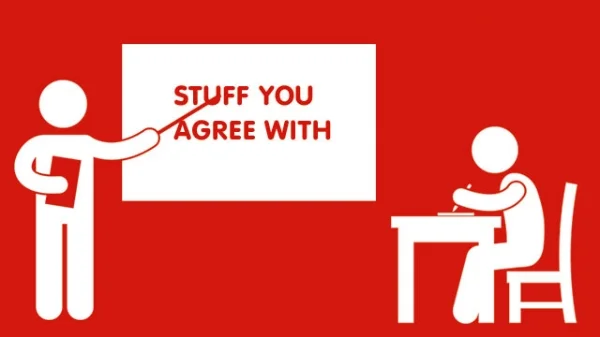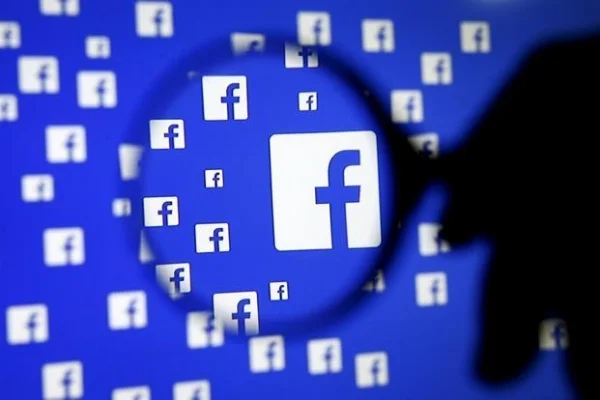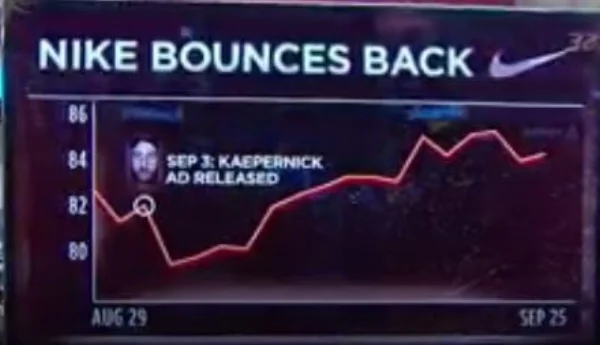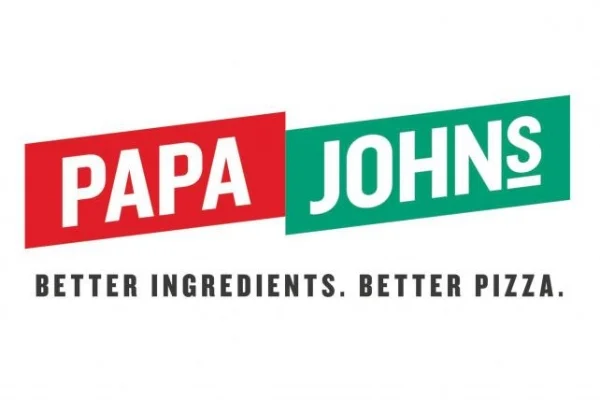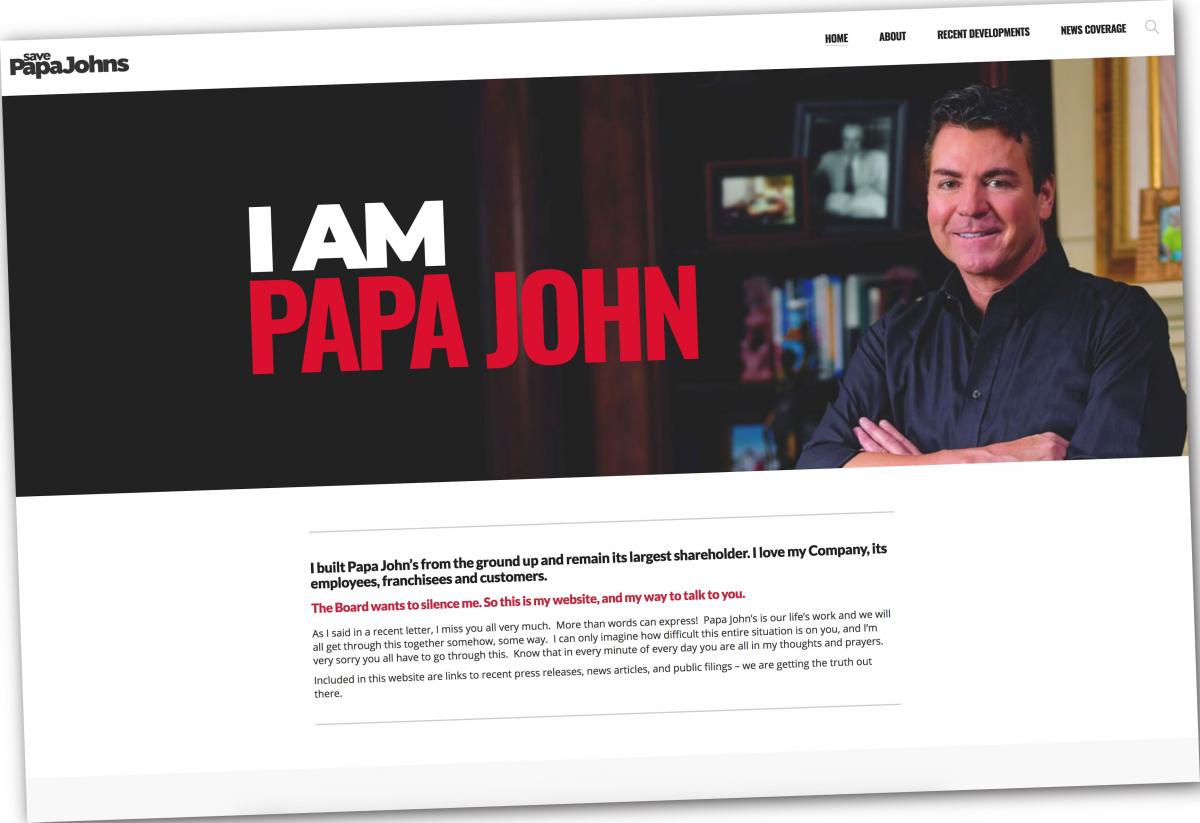Teacher Recommendation Letters Influence Harvard Decision
Details about Harvard’s admissions process are surfacing during the trial about how the university’s “race-conscious” decision policy may adversely affect Asian-Americans. The entire guidebook for admissions decisions in 2014 was entered into evidence.
This week, Harvard revealed that white students typically receive “somewhat stronger” recommendation letters from teachers and guidance counselors than Asian-American students, which affects each group’s “personal rating.” The personal ratings on based on characteristics such as kindness, courage, and leadership. When writing letters, reviewers are asked to assess “consistent testimony of an applicant’s unusual effervescence, charity, maturity, or strength of character.”
Back in 1990, the US Department of Education’s Office of Civil Rights criticized Harvard’s practice of using a personal rating and admissions officers’ stereotypical comments of Asian-American students. The same issue seems to be presented here, with comments from teachers and guidance counselors.
Discussion:
How valuable do you think teacher and guidance counselor letters of recommendation are in the admissions process? How much weight should they carry in the overall decision?
By definition, the personal rating includes subjective evaluations. Should universities try to avoid subjectivity in the admissions process? Why or why not?
Facebook's Messaging Over Time
The Wall Street Journal reports how Facebook has repositioned itself since its founding in 2004.
In 2005, at Harvard, founder Mark Zuckerberg said Facebook’s purpose is to ”look people up” and for “connecting to people.” In 2008, Facebooke expands and messages focus on helping people “share information. . . and share parts of their identity with each other.” In 2010, Zuckerberg’s vision enlarged: “People can have instantly social and personalized experiences everywhere that they go.” Soon after, Zuckerberg focused on problem solving.
In 2012, Zuckerberg said, “Our mission isn’t to be a public company. Our mission is to make the world more open and connected.” By 2013, Zuckerberg was seeing Facebook’s role in selecting governments, getting healthcare access—improving people’s lives.
More recently, given concerns about privacy and misinformation, Zuckerberg’s messages focus on responsibility.
Discussion:
The WSJ video has a negative connotation about Facebook’s changing message, particularly in light of today’s news about shareholder proposals to split Zuckerberg’s roles. Do you agree with this assessment?
How well has Zuckerberg handled messages about the evolution of Facebook in the past 14 years? What, if anything, can he do differently now?
Do you agree with the proposal to split the CEO and chairman jobs? In other words, does Zuckerberg have too power? Does he need help at this point?
How is Facebook’s evolving messaging a potential matter of integrity?
Woman Fired for Racial Profiling
A woman refused to let a black man into her apartment, and she was subsequently fired from her job. Hilary Mueller is shown on video, taken by D'Arreion Toles, asking to see his key fob and questioning who Toles was going to visit in the building. Toles eventually moved past Mueller, who followed him to his apartment door.
When the video was posted, it attracted more than 5 million views. Toles included the captions, "to be a black man in America" and "this is America in 2018." Complicating matters, Mueller called the police after the incident. Also, Mueller’s husband posted a video condemning her behavior. They have been separated for more than a year.
Mueller’s employer, real estate firm Tribeca-STL, also saw the video and terminated her employment. An ABC report includes a statement from the firm:
"The Tribeca-STL family is a minority-owned company that consists of employees and residents from many racial backgrounds. We are proud of this fact and do not and never will stand for racism or racial profiling at our company."
As of this writing, both the company website and its Twitter feed are unavailable.
Discussion:
Explain how this incident is an example of racial profiling.
Do you agree with the firm’s decision to fire Mueller? Why or why not?
In what ways did Mueller demonstrate and fail to demonstrate integrity and humility?
Video: "The Columnists on Risk"
The Wall Street Journal has gathered ideas from artists, celebrities, and business people on taking risks. Risk-taking is essential to address situations that conflict with your values, to have difficult conversations, to innovate, and to advance your career.
To demonstrate courage, we must assess risks. in his book, Moral Courage, Rushworth Kidder identifies three questions to ask ourselves when faced with a decision that requires courage. First, we must be willing to face ambiguity and confusion. Situations that require courage are rarely straightforward. Can we handle conflicting, complex points of view without having one “right” answer? Second, are we willing to face exposure? By taking action, we make ourselves vulnerable. Are we ready for the leadership role that’s required? Third, can we accept the loss? We may lose our reputation, our relationships, or our job.
Discussion:
How would you describe your risk tolerance?
To which of the ideas shared in the video do you most and least relate?
Some people in the video describe physical risks. What’s the difference between physical and moral courage?
How do your own ideas about risk affect your work and your employment choices?
Harvard Admissions Case In Progress
The class action lawsuit against Harvard University has begun, with the defendant’s arguments focused on the value of diversity. The university is charged with discriminating against Asian-Americans based on its “race-conscious” policy.
In the closely watched case in Boston, the plaintiff argued that Harvard’s system of rating students on academic achievement, athletic ability, extracurriculars, and personality encourages skewed ratings in the last category based on race. The plaintiff attorney said, “Diversity is not on trial here,” and instead explained that Asian-American applicants are admitted at lower rates than they would be based on their academic achievement.
Harvard sent letters to students in underrepresented states if they scored well on their PSATs. But the encouragement to apply varied based on race. White students needed at least 1310 on the verbal and math sections in these states; however, nationwide, Black, Hispanic, and Native American students needed at least 1100. For Asian-American students, the threshold was higher: 1350 for females and 1380 for males.
Harvard defended its practices, claiming the university “cannot achieve educational goals without considering race.” The defendant’s attorney gave the diverse courtroom as an example of the benefit of the university’s policy. Also in defense, a representative from the NAACP said, “A colorblind approach means that you close your eyes to the full lived experiences of applicants.” Part of Harvard’s defense is that people cannot be separated from their race—it is part of the whole of who they are.
Harvard image source. Harvard library image source.
Discussion:
What’s your view of Harvard’s admissions policy?
How might you have been advantaged or disadvantaged by affirmative action practices in applying to school or to jobs? How, if at all, does your experience factor into your perspective?
The plaintiffs argue that Harvard is secretive about its approach. What is the value of keeping an admissions policy private, and how could this privacy be harmful?
Bad News at Verizon and Sears
Verizon and Sears employees are facing job loss in the coming months.
Verizon is outsourcing some technology functions to Infosys, resulting in 2,500 jobs leaving the company.
At first, Verizon wasn’t planning to offer severance, but pressure from employees caused company leaders to change the approach. Timing was part of the problem: last month, 44,000 Verizon managers were offered a voluntary severance package to leave the company. Now, about 1,000 employees have a choice of whether to work for Infosys or accept severance pay.
Sears is declaring Chapter 11 bankruptcy after years of attempts to save the department store. The company has been steadily shedding stores. Only 700 are left, down from 1,000 in February, and more than 3,000 about a decade ago.
CNN reports that Sears has been warning investors that they may go out of business, and suppliers are requiring payment up front.
Discussion:
What’s your view of Verizon’s severance plans: unfair, discriminatory, financially necessary, based on sound principles, or something else?
Sears investors and suppliers recognize the likely fate of Sears. How prepared do you think employees are? What could the company do to help employees at this point?
Senators Send Harsh Letter to Google
The U.S. Committee on Commerce, Science, and Transportation sent a strongly worded letter to Google CEO Sundar Pichai. The senators question what the company has done to protect 500,00 users whose profile information was stolen in 2015. Their anger stems from knowledge of an internal memo, cited in a Wall Street Journal article, discouraging disclosure because of fear of “immediate regulatory interest” and the requirement for Pichai to testify before Congress.
In the letter, the senators compare Google’s response to Facebook’s in light of the Cambridge Analytica breach:
“At the same time that Facebook was learning the important lesson that tech firms must be forthright with the public about privacy issues, Google apparently elected to withhold information about a relevant vulnerability for fear of public scrutiny.”
The senators then list specific information about vulnerabilities for Google to provide by October 30.
Discussion:
Read the Wall Street Journal article for more background information. Did the senators respond appropriately? Why or why not?
What is Google’s accountability in this situation? What is the committee’s accountability?
In addition to responding to the senators’ requests, what, if anything, should Google communicate to the public at this point?
Google may have been avoiding its own vulnerability.
Brené Brown on "Who You Are at Work"
An interview with Brené Brown, a researcher at University of Houston, reminds us to bring our whole selves to work. According to Brown, we need all of ourselves to solve problems.
Brown encourages people to create a culture where people can lose their armor, which she considers most damaging to relationships. When people protect themselves rather than allow themselves to be vulnerable, they miss opportunities for connection.
Brown defines vulnerability as “the willingness to be ‘all in’ even when you know it can mean failing and hurting.” She says vulnerability means risking emotional exposure when you don’t know the outcome.
The interview reminds me of a Deloitte study that identified ways employees “cover” themselves to fit in. For example, people change their appearance, avoid discussions that would reveal political and other affiliations, and avoid associating with people who are like them.
Like Brown’s conclusion that leadership is key to enabling employees to be themselves at work, 53% of respondents in the Deloitte study said their leaders expected employees to cover.
Discussion:
How is “armor,” as Brown defines it, similar to ways of “covering” identified in the Deloitte study?
What are the benefits of protecting ourselves in this way? What are the negative consequences?
When have you avoided vulnerability? In retrospect, how did the decision turn out? Would you do something differently today?
What can leaders do to create a culture when people can be themselves at work?
Climate Change Report
If you weren’t already concerned about climate change, a new UN report may change your thinking. The extraordinary report, written by dozens of scientists from 40 countries who reviewed more than 6,000 studies, reveals a bleak picture for the Earth’s future. The introduction, titled “Chapter 1: Framing and Context” is 61 pages, and the rest of the report is a long, deep dive into the data.
The most significant conclusion is that global warming must be limited quickly. The authors write with great urgency that the Earth’s temperature has already increased and that further increases will create heatwaves, eliminate ice in the Arctic Ocean, melt massive ice sheets, devastate coral reefs, and produce intense storms. Further, global warming will result in more poor people: "Climate change is projected to be a poverty multiplier, which means that its impacts make the poor poorer and increase the total number of people living in poverty.”
The authors suggest limiting the planet's warming to 1.5 degrees Celsius (2.7 degrees Fahrenheit) above pre-Industrial Revolution temperatures to avoid catastrophic results. They also warn that this requires "rapid, far-reaching, and unprecedented changes in all aspects of society."
A New York Times article, “Dire Climate Warning Lands With a Thud on Trump’s Desk,” describes President Trump’s disinterest in the report findings. Similarly, a text search on today’s Wall Street Journal home page finds an article about Exxon but nothing about the UN report.
Discussion:
Analyze the report audience, objectives, writing style, and organization. Which business writing principles are followed?
What improvements would you make to improve report readability?
What are your views about climate change? What evidence leads to your conclusions?
Amazon Loses Favor After Announcing $15 Wage
Amazon received good press for announcing employees would earn a minimum of $15/hour. But today’s news tells a different story.
Although the hourly wage will increase, Amazon is cutting bonuses and stock options, and employees fear it will cost them thousands of dollars in total compensation. The stock options, according to employees’ online posts, gave them a sense of company ownership. Some proposed walking out on Black Friday, the biggest shopping day of the year. Amazon had also granted bonuses for attendance and productivity, called Variable Compensation Plan, or V.C.P.
In response, company leaders said they would look at employees’ total compensation to make sure no one would be worse off after the changes. A spokesperson also released this statement:
"The significant increase in hourly cash wages more than compensates for the phase out of incentive pay and [restrictive stock units]. We can confirm that all hourly Operations and Customer Service employees will see an increase in their total compensation as a result of this announcement. In addition, because it's no longer incentive-based, the compensation will be more immediate and predictable."
Box image source. Cart image source.
Discussion:
This is quite possibly a miscommunication or, more to the point, poor communication from Amazon officials to employees. How could the company have done a better job?
How well does the statement address the criticism? What else should the company communicate at this point?
How is this an issue of integrity for the company?
Facebook Policy Executive Sat Behind Kavanaugh
Joel Kaplan, Facebook’s vice president for global public policy, sat behind his friend, Brett Kavanaugh, during the charged hearings to determine whether he would win support as the next Supreme Court justice. Because of his position at Facebook, employees questioned his loyalties and whether it was appropriate for him to be so visible during the judge’s testimony about whether he sexually assaulted a woman as a teenager.
His appearance was a “surprise” to employees, and hundreds wrote about their concerns on Facebook’s intranet site. One employee wrote, perhaps expressing the sentiment of Facebook’s liberal employees:
“Let’s assume for a minute that our VP of Policy understands how senate hearings work. His seat choice was intentional, knowing full well that journalists would identify every public figure appearing behind Kavanaugh. He knew that this would cause outrage internally, but he knew that he couldn’t get fired for it. This was a protest against our culture, and a slap in the face to his fellow employees.”
Kaplan defended participating, referring to their 20-year friendship, and CEO Mark Zuckerberg said he didn’t violate any company policies by attending, although he did say he would not have made the same decision. Employees wanted to hear from COO Sheryl Sanberg about Ford’s accusations, and she was not forthcoming, according to a Times article. But she did comment on Kaplan’s attendance:
“As a woman and someone who cares so deeply about how women are treated, the Kavanaugh issue is deeply upsetting to me. I’ve talked to Joel about why I think it was a mistake for him to attend given his role in the company.”
Discussion:
Read additional Facebook messages in the Times article. How would you summarize employees’ concerns?
What’s your view of Kaplan’s attendance? Consider the “optics” in addition to company policy.
Some might say that Kaplan was being authentic by sitting behind his friend. Do you agree with this view? Why or why not?
Which character dimensions are illustrated by this story?
Crisis at Sloan Kettering
Memorial Sloan Kettering (MSK) Cancer Center’s chief executive, Craig Thompson, has resigned from two boards, Merck and Charles River Laboratories, following investigations of conflicts of interest. Thompson issued a statement about his decision to resign:
“I have taken feedback from our staff and faculty seriously and intend to lead by example. I believe this is the right decision for Memorial Sloan Kettering and will allow me to redouble my focus on MSK priorities: quality patient care, faculty, scientists and staff.”
Sloan Kettering’s chief medical officer, Jose Baselga, was accused of not reporting millions of dollars he received from pharmaceutical companies for his research articles. Baselga previously resigned from Memorial Sloan Kettering as well as Bristol-Myers Squibb, where he served on the board. As one former patient wrote, failing to disclose payments gives “the appearance of influence is troubling. It highlights ineffective oversight, with the potential to cast a shadow on the center’s other excellent doctors.”
When the story first broke, Memorial Sloan Kettering leadership wrote a letter stating, “MSK and our faculty need to do a better job.”
Discussion:
Analyze the MSK letter. Who is the audience, and what are the communication objectives? How do you assess the organization and writing style?
Should Thompson also resign his chief executive position at MSK? Why or why not?
How well does MSK leadership take responsibility for the problems? How is this an issue of integrity for MSK?
Amazon Increases Pay to $15/Hour
Starting November 1, Amazon will pay 250,000 and 100,000 seasonal workers at least $15 an hour. A blog post quoted CEO Jeff Bezos:
“We listened to our critics, thought hard about what we wanted to do, and decided we want to lead. We’re excited about this change and encourage our competitors and other large employers to join us.”
The post include a video, “Amazon associates react to $15 minimum wage announcement”:
The company also they would work to increase the federal minimum wage, which, as an Amazon SVP says, could improve from the “current rate $7.25 [which] was set nearly a decade ago,”
One analyst predicted that, after taxes, Amazon’s operating profit will take a hit of 1 of 2%. But the move is being well received. For example, Senator Bernie Sanders, a former critic, complimented the decision:
“What Mr. Bezos has done today is not only enormously important for Amazon’s hundreds of thousands of employees, it could well be a shot heard around the world. I urge corporate leaders around the country to follow Mr. Bezos’s lead.”
Discussion:
Assess Amazon’s blog post and video. How well does the company use the news to improve the company’s image?
What’s your view of the move: the right thing to do, a bad financial decision, or something else?
British Rail Company Apologies
Great Western Railway is tripping over itself apologizing for thousands of canceled and late trains. Apologies by British train organizations are so common that a web designer created a site, https://www.sorryfortheinconvenience.co.uk, to chronicle statements, now totaling more than 420,000.
A look at the railway’s Twitter feed shows two failures but no apology. Maybe the organization is catching on: over-apologizing isn’t a good strategy. At some point, customers just want problems fixed.
Discussion:
How can a leader know when the organization is apologizing too much?
Take a look at the GWR Twitter feed. How would you advise the organization to improve its communications?
What leadership character dimensions is GWR demonstrating and failing to demonstrate with its apologies?
Kavanaugh and Ford Demonstrate Vulnerability
During the Senate Judiciary Committee hearings, Judge Brett Kavanaugh and Dr. Christine Blasey Ford both displayed emotions for the media to analyze and compare.
A New York Times article reports, “Kavanaugh's show of both fury and tears was a cry from the flip side of the #MeToo movement.” We saw an angrier Kavanaugh than during his Fox News interview, perhaps a reaction to President Trump’s disappointment in his mild manner.
A CNN article recalls a 2005 interview when President Trump said, "When I see a man cry I view it as a weakness. I don't like seeing men cry." The article also concludes,
“Judgments on Kavanaugh's emotional performance will likely depend on each viewer's perspective, but he demonstrated the wider latitude that men in politics have today to show their emotions. However, were he a woman, he would likely be dismissed as overwrought, even hysterical, which helps explain why the witness who testified before him, Christine Blasey Ford, was far more composed and restrained.”
The Times article describes Ford’s presentation: “[H]er voice cracking but her composure intact.” In another Times piece, “The ‘Tight Rope’ of Testifying While Female,” the writer confirms, “She teared up in her testimony — her voice cracking — but she did not openly cry or break down.” That article also cites her asking for caffeine and telling a joke: “These are all codes for ‘she is displaying proper expectations of femininity.’”
Gender experts and other reporters also noted the contrast. Referring to Kavanaugh’s tears, Alicia Menendez of PBS said, “If he were a woman, we’d be questioning if she were unhinged.”
Both demonstrated vulnerability and risked emotional exposure. Despite the public backlash, Ford came forward to tell her story. And Kavanaugh responded by displaying emotions often viewed negatively for a man. However, overall, reports of his anger seem to overshadow the tears.
Kavanaugh image. Ford image source.
Discussion:
What’s your view of the emotional displays during the testimony? How do you think gender differences factored into how each was judged?
Have you ever cried at work? Which emotions are seen as appropriate, and which are discouraged? Should we be more open to both anger and sadness in the workplace?
WhatsApp Message Causes Dramatic Infibeam Stock Price Drop
Infibeam, an India e-commerce company, lost more than 70% of its stock value after a WhatsApp message questioned the company’s governance. The message was reported to be sent by an analyst at Equirus Securities months ago, but it only recently surfaced and went viral. Equirus denies involvement.
An India Times article explains the message:
“The note said the company gave an interest-free and unsecured loan to a subsidiary with negative net assets to be repaid over eight years. The note also mentioned that the company has re-classified its co-founder, who continues to hold a large chunk of shares, as non-promoter.”
An Infibeam spokesperson responded to the controversy:
“The company has given interest-free unsecured loans to its wholly owned subsidiary NSI Infinium Global since inception. These loans are short-term loans which are repayable on demand and have been utilised by NSI solely for its business and operations. Further, there has been no change in the promoters from the list of promoters identified and disclosed by the company info in the offer documents for its IPO.”
Discussion:
How can people do a better job at distinguishing between real reports and rumors?
How well did Infibeam respond to the news? What effect do you expect on the company stock on Monday?
Are U.S. Campuses Coddling Students?
A new book, The Coddling of the American Mind: How Good Intentions and Bad Ideas Are Setting Up a Generation for Failure, explores the impact of political discourse on U.S. college campuses. The book is an expansion of an Atlantic article in which Jonathan Haidt, one of the book authors, disputed “trigger warnings” and other anxiety-avoiding tactics.
The authors are clear that harassment and discrimination are wrong, and that students who experience them should report the incidents. But, according to a Bloomberg article, we may lose the ability to communicate with each other:
“They worry about the What worries him is the looseness of the term ‘bias’ and the idea that students are urged not to work out their concern with the alleged perpetrator but to report it directly to the authorities.”
Also concerning the authors is the high percentage of liberal faculty members. A recent study shows that 39% of the most elite liberal arts schools have no Republican professors. The Bloomberg writer notes the possible negative effect:
"Critics argue that the atmosphere of liberal orthodoxy increases the risk that graduates will enter the workforce without knowing how to confront political viewpoints different from their own.”
Discussion:
What’s your view? Are we coddling students, or do they need more protection and “safe spaces”?
How would you describe the differences among discrimination, harassment, and bias?
How might the issue of protecting people from bias contribute to sexual harassment in the workplace? How can we help people sort out problems at an interpersonal level?
Facebook Breach Announced Today
Millions of Facebook users inadvertently gave hackers access to their accounts, and the company is trying to fix the problem. Hackers found a way in through the “View As” feature, which people use to see how their profile looks to others.
The company learned of the issue this week and today held a conference call with reporters. To the extent to which Facebook could manage the story, it’s the perfect day for such a report, when the country is focused on whether lawmakers will support Brett Kavanaugh’s nomination to the Supreme Court despite allegations of sexual assault.
On the conference call, CEO Mark Zuckerberg stressed that fighting hackers is an ongoing concern:
"This is a really serious security issue. This underscores there are just constant attacks from people who are trying to take over accounts and steal information from our community. This is going to be an ongoing effort."
Facebook’s VP of product development posted a “Security Update” statement on Facebook’s news site, including this reassurance:
“People’s privacy and security is incredibly important, and we’re sorry this happened. It’s why we’ve taken immediate action to secure these accounts and let users know what happened.”
Cover image source. Spotlight image source.
Discussion:
Do you agree that Facebook timed the announcement when a bigger story would likely overshadow the news? Or am I just cynical?
Assess the Security Update as a persuasive message. Describe the tone and organizational strategy. How well does the statement achieve its objectives?
How well does the company take responsibility for what happened?
Nike Addresses Kaepernick on Earnings Call
On a quarterly earnings call, Nike CEO Mark Parker addressed head on the new ad campaign with former NFL player Colin Kaepernick. Following strong first-quarter earnings and revenue growth, Parker expressed confidence in Nike’s sponsorship agreement, particularly related to social media engagement:
“How we look at it is how do we connect and engage in a way that’s relevant and inspiring to the consumers that we’re here to serve. Our brand strength ... is a key dimension that contributes to the ongoing momentum that we’re building across the Nike portfolio.”
About an ad campaign that also features athletes Serena Williams and Lebron James, Parker said,
“These are actually very inspiring athletes, and again we feel like that campaign has delivered on that message in a way that’s really connected with people around the world.”
But the stock did fall in after-hours trading after the earnings report. Analysts say investors expected more than 10% revenue growth, and they note this is the first quarter since a sexual harassment scandal hit the company.
Discussion:
The company executives tout the campaign results on social media. How much do these results matter compared to the earnings report?
Maybe this is another example of how quarterly reports aren’t the best measure of company performance. Should we be looking longer term? Why or why not?
Papa Johns Rebranding
Papa John’s will lose the apostrophe, signaling a distancing from its founder and owner, John Schnatter. An AdAge article chronicles issues with Schnatter, starting with his blaming the NFL’s handling of players “taking a knee” and ending with his taking out an ad in a Louisville, Kentucky, newspaper, shown here. The ad reads, “The Board wants to silence me” and points to his own website, savepapajohns.com.
The final straw was when Schnatter used the “n” word and made other questionable racial comments on a conference call. Soon after, Schnatter was removed from the board of directors.
With the slogan, “Better Ingredients. Better Pizza,” the company hopes to divert attention from Schnatter back to the pizza.
Discussion:
What’s your view of the revised company name? To what extent will the change achieve the company’s objectives?
Take a look at Schnatter’s website. The AdAge article says, “Who’s to say whether it’s delusional . . . “ What do you think? What does Schnatter hope to achieve, and how well does the site achieve his objectives?




